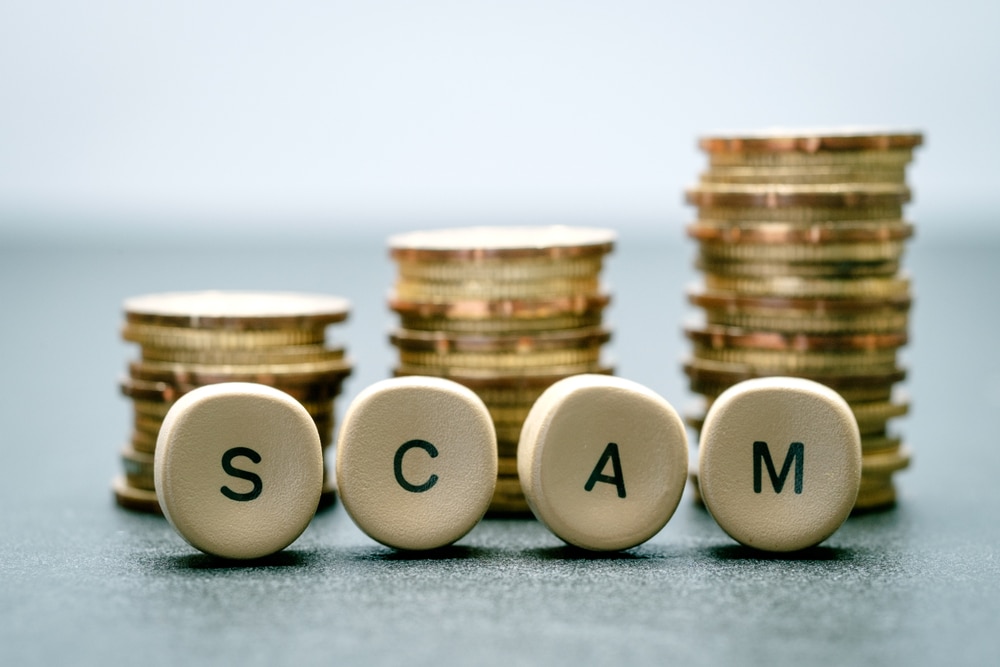If you’re worried that an investment ISA may be too good to true here’s our guide to spotting ISA scams
Investment ISAs that advertise eye-catching returns can be very tempting, but in some cases they are run by scammers who are out to steal your money.
There have been several instances of investment ISA scams over the past few years, resulting in unsuspecting investors losing thousands of pounds. Most recently, a firm called ABN Amro Asset Management lured savers by advertising above-inflation rates and pretending to be a British arm of Dutch banking group ABN Amro. Some savers lost nearly £100,000 to the ISA scam.
There have also been cases which aren’t technically scams, but where firms have used questionable marketing tactics to entice investors. London Capital & Finance, which ran a mini-bond scheme, promised investors returns of 8% through what it described as a secure ISA. The firm went bust after paying an agent 25% commission to run a marketing campaign, which was subsequently found to be misleading. Administrators warned that investors could get just 20% of their money back.
The warning signs of ISA Scams
Scams are becoming increasingly sophisticated, making them difficult to distinguish from genuine investment opportunities. According to the Financial Conduct Authority (FCA), one of the biggest warning signs is being contacted out of the blue – for example, a cold-call or email. If this happens, you can simply hang up the phone or ignore the email.
Some scams are advertised online or via social media, so it’s important to be aware of the other warning signs. These include the promise of unrealistic returns, sharing fake reviews, pressuring you to make a quick decision and not allowing you to call them back.
Related Reading: Pension Scams: How To Spot, Avoid and Report Them
One of the easiest ways to determine whether something is a scam is to check whether the firm or individual is authorised with the FCA. If it isn’t, it is probably a scam and you won’t have the protection of the Financial Ombudsman Service or Financial Services Compensation Scheme (FSCS).
You should also check whether the firm is genuine and not a clone firm, as was the case with ABN Amro Asset Management. You can do this by using the contact details on the FCA’s Register and checking their details at Companies House.
Is it an ISA scam or a high-risk investment?
ISAs with returns that seem too good to be true are sometimes a scam, but in many cases, they are genuine yet very risky investments. Some Innovative Finance ISAs offer double-digit returns but the underlying investments can be extremely high risk, for instance, those that provide property development finance loans. Innovative Finance ISAs aren’t covered by the FSCS, so you could lose all your money if things go wrong.
“You should remember that investments which advertise higher returns or higher interest rates usually come with more risk that you won’t get your money back,” Warns Patrick Connolly, Chartered Financial Planner at Chase de Vere.
The same is true for mini-bonds, such as those advertised in the London Capital & Finance scandal. Mini-bonds don’t offer FSCS protection and investors are reliant on just one company to pay them back. There are also potential liquidity risks because mini-bonds aren’t actively traded.
“For most people, the extra risks involved in buying mini bonds, together with the lack of protection, mean that they aren’t suitable, and where they are used it should only be for a very small proportion of an overall portfolio,” Says Connolly.
What to do if you fall victim to an ISA scam
If you do think you’ve fallen victim to a scam and have handed over your bank account details, the first step is to inform your bank immediately. You can report investment scams to the FCA ScamSmart website. It’s important to be vigilant in the future because scammers are likely to target you again – by offering to help you get your money back or through a completely separate scam.

Emily Perryman is a freelance financial journalist with over a decade of experience writing for national, consumer and trade publications. She specialises in investments, pensions, property, fintech and tax. Emily was previously the personal finance editor at Shares magazine.




